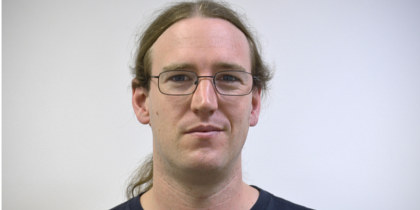
November 15, 2013, by Jemma Utley
How I Got a Career Using My Pure Maths PhD, Outside of Academia
David Sim, Research and Development Engineer at Transversal
Most people believe a career in mathematics will be confined to the four walls of a classroom or lecture hall and in most instances it probably is. What’s interesting though is that it doesn’t have to be!
It wasn’t until I completed a PhD in pure maths at The University of Nottingham that I realised how the mathematics skills I gained during my long career in education could be put to good use outside of academia. Having been a research and development engineer at Transversal for over two years now, it is fair to say that maths skills open up plenty of diverse career opportunities in the 21st century.
Putting theory into practice
I was drawn to maths from a young age; I enjoyed problem-solving and the abstract nature of the subject. After school, I studied maths at Cambridge University before heading to The University of Nottingham to complete a PhD in pure maths.
Originally I took on a PhD as I wanted to be a mathematician. At the time I was interested in writing research papers and contributing to academia, but the practical side of maths started to become more appealing to me throughout my course. It wasn’t until I started researching the job opportunities outside of academia, for maths PhD graduates, that my eyes were opened to the career paths available to me.
There were a handful of engineering, coding and web design roles that caught my attention but, like most maths graduates, I didn’t want a repetitive job that only allowed me to explore one area of mathematics.
Finding a job where innovation is rewarded
There were actually lots of research and design jobs in Cambridge but I was attracted to the role at Transversal as I felt the company offered a flexible working environment where innovation would be rewarded.
I work as part of the research and development team, with each of us holding a specific role that helps contribute to the wider research agenda. The content produced by me and my team adds value to the business in two ways. Firstly, our work is used to showcase our expertise and products to existing customers and to get buy-in from new business prospects. Secondly, our team is often approached by customers who have a very specific problem. It is our job to then build the technology to fix it.
Tackling a different role every day
The great thing about my job is the variety. I take on a different role every day depending on the engineering element and customer issue I am being tasked with. I am more or less approaching new problems from scratch, which is becoming decreasingly common in the field of coding. I see my role as open-ended; if I make a convincing case for a piece of code that I think would be useful, I am given the freedom to create it.
Staying on the shop floor
For people like me, who enjoy research and development, the future holds much of the same – or put another way: “If what you enjoy is the shop floor then you work to stay on the shop floor.” Although I expect advancements in technology will affect the fundamentals of my day-to-day work, I have no desire to progress to a management-only level. For now, I am enjoying the role I have created for myself at Transversal. I have a good knowledge of algorithms and really enjoy experimenting with complicated mathematical problems on a daily basis.
What you should take away from all this? Well, I would advise that while there are graduate schemes that can help you secure an entry position in engineering; a masters/PhD level education goes a long way in setting you up for success.
You can book a confidential appointment with the Careers team’s senior careers advisers through MyCareer.

I just have a question regarding your experience with math graduate study. i come from a humble background and worked my way up to a good university now a senior undergraduate B.S. in math . it took me a while so I am aged 29 currently… probably will submit my application at age 30. In your opinion should one let age deter them? or not?